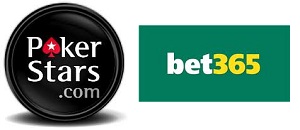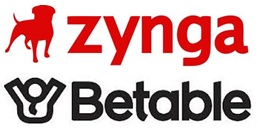It has been fascinating to watch the rapid evolution of the US online gambling market after a relaxing of the Federal Wire Act in 2011 opened the door for online Poker (and more) on a state by state basis. In fact, just Thursday the Nevada legislature approved a bill allowing interstate online poker on the quick, because they caught wind that New Jersey may do so next week.
This is a rare, massive, greenfield opportunity in the US that is primed to unfold quickly. According to KPMG, the worldwide market for online gaming is about $32 billion per year today, and that is without meaningful (legal) contribution from the US, the world’s richest economy. Juniper Research estimates that worldwide betting on mobile devices alone will be a $100 billion market 2017. History suggests whoever gets there first with a quality offering will earn the early advantage. So who’s positioned to win?
The Competitors
There are three prime candidates: existing brick and mortar casino operators expanding into online gaming, overseas online gaming brands that adapt their offerings to the US, and startups that are coming at the market from a completely new angle. Let’s take a quick look at each.
 Traditional brick and mortar casinos fall into two tiers, in one bucket you can put mega-players like MGM, Caesar’s and Wynn and in the other bucket goes everybody else. The primary asset that the big casinos have is a well-known American brand, and existing relationships with the prime target market (people who already like to gamble). Their liability is that they have no direct experience with what is unique about online gaming vs in casino gaming. There will be a learning curve as they figure out the best way to blend the two business models. Smaller casinos largely rely on vendors to supply their casino floor management system, and would surely do the same for online gaming. It is unlikely that local regional casinos will be major players in the online world, but some will give it a go.
Traditional brick and mortar casinos fall into two tiers, in one bucket you can put mega-players like MGM, Caesar’s and Wynn and in the other bucket goes everybody else. The primary asset that the big casinos have is a well-known American brand, and existing relationships with the prime target market (people who already like to gamble). Their liability is that they have no direct experience with what is unique about online gaming vs in casino gaming. There will be a learning curve as they figure out the best way to blend the two business models. Smaller casinos largely rely on vendors to supply their casino floor management system, and would surely do the same for online gaming. It is unlikely that local regional casinos will be major players in the online world, but some will give it a go.


Under the Covers: Building for Rock-Solid Scale and Agility
Each type of competitor comes to this market with business model strengths and weaknesses, but one thing they will all need is rock solid infrastructure that can handle rapid scale and provide extreme flexibility to adapt as the market changes. Online gaming platforms have a lot in common with financial exchanges, and the same technologies generally apply. Both are very large scale event-driven systems where market participants meet and performance matters. Both have advanced security and fraud detection requirements. Both need highly evolved auditing and logging facilities to handle financial transactions, payment disputes and assurances of fair play. Both need highly elastic infrastructures that can handle extreme peaks without being wasteful the rest of the time. There are plenty of differences, to be sure, but they are far more alike than not.
Solace and Online Gaming
This similarity is what led Solace to the online gaming market several years ago. We had established a pedigree in financial trading and used that to crossover into initial gaming accounts. Today, we’re acquiring new gaming clients because we’ve proven our products directly in the market. Hardware middleware fits the requirements perfectly: extreme reliability, virtually unlimited scale, and simple operations – all at a fraction of the cost of other commercial (or open source) options. Messaging appliances make sense for all the same reasons that online gaming companies use hardware load balancers for their app servers. They’re faster, higher capacity, more reliable and much lower cost.
From our perspective, we view ourselves as similar to what 4G LTE cell tower manufacturers are to the smart phone revolution. All three major groups of competitors described above will need rock solid, high capacity infrastructure and we will be there to help them succeed in the US as we have done with many of the leaders in Europe and Asia. It is likely that all three will grab a share of this lucrative market, the question is who will lead the way? It will be fun to watch it all unfold.
Explore other posts from category: Use Cases

 Solace
Solace
